SBI Investigating Greensboro Council Member Amid Allegations of Homeless Relocation, Misuse of Funds and Conflicts of Interest; Likely Target Zack Matheny
Greensboro, N.C., July 4, 2025;
A series of escalating controversies surrounding Greensboro City Council Member Zack Matheny appears to have triggered a formal investigation by the North Carolina State Bureau of Investigation (SBI). The investigation, requested by North Carolina Attorney General Jeff Jackson, was launched two days after The Assembly published an exposé detailing allegations by George Hartzman that Matheny blurred the lines between his roles as a city councilman and CEO of DGI.
The probe follows public outcry and newly revealed financial records indicating Downtown Greensboro Inc. (DGI), a nonprofit led by Matheny and funded in part by the City of Greensboro among multiple other issues, secretly bussed unhoused individuals out of the city without informing key oversight bodies.
Tax Accountant and sometimes government watchdog George Hartzman first received a Fiscal Year 23-24 DGI related ledger from an Eric Robert records request, likely released by mistake, on May 21, 2025. The IRS 990 from DGI for the corresponding fiscal year was released on June 12;
A source close to Hartzman's investigation, speaking anonymously, said "The FY23-24 records are just the tip of the iceberg. We’ve seen hints of deeper issues—missing receipts, blurred expense reports and private meetings that never appeared on any public filing."
On July 3, SBI spokesperson Chad Flowers confirmed the investigation is “into the activities of a city council member,” although the agency declined to name the subject.
The investigation comes just days before candidate filing opens on July 7 for Greensboro’s 2025 elections. Matheny has declared he is running for re-election in District 3.
Matheny’s Dual Role Under Fire;
Matheny resigned from his city council position in 2015 citing a conflict of interest as he negotiated to become CEO of DGI. Curated by Zack, DGI's 2021-22 board decided it was ok, and Matheny was re-elected to the city council in 2022 while serving as DGI's President/CEO.
Critics, including former candidates and local activists, have long questioned the conflict created by Matheny’s leadership of DGI while serving on City Council.
“Zack Matheny sits on City Council and runs DGI, a clear conflict,” said Hartzman. “He’s voted to approve millions in taxpayer money for projects that benefit DGI’s donors, clients, allies and himself, including some of his political contributors.”
Formal Complaints Cite Tax Fraud, Lobbying Violations, Gift Ban Breaches;
On July 2, Hartzman sent a detailed email to DGI’s Board of Directors summarizing complaints filed with the City of Greensboro’s Clerk and Attorney’s office citing dozens of potential legal violations. “Failure to act will not only risk further damage but could also expose DGI and its board members to legal liability,” Hartzman wrote. “This is not personal.”
The correspondence, also sent to agencies including the NC State Auditor, Department of Justice, Treasurer, Local Government Commission, State Ethics Commission, NC Secretary of State's Office, NC Congressional Finance Committee, ACLU, FBI and IRS called for immediate investigations.
"It's not our investigation, and we will await their findings," said city spokesperson Eric Chilton on Thursday. Notably, Chilton's name appears twice in the ledger (below) for meals totaling $545 at B. Christopher's.
On June 20, Hartzman informed the City Attorney's office that an SBI or any other investigation does not justify suspending Greensboro’s mandated ethics process, which calls for an independent inquiry. The City's code contains no provision allowing delays for external investigations, but requires the city to appoint an independent investigator and proceed regardless of parallel inquiries, which the City has yet to initiate.
Among the allegations;
Conflict of interest violations;
DGI’s contract with the City of Greensboro contains a clear Conflict of Interest clause prohibiting any financial or personal benefit to elected officials, individuals exercising oversight over funded activities or those with decision making authority. As DGI’s current CEO simultaneously serves as an elected City Council member, this dual role appears to fall squarely within the contract’s prohibited conflict categories.
An example among multiples of others;
From 9/20/21 DGI Board Meeting Minutes, Matheny reports patio dining in the agenda with a little help from Mayor Nancy Vaughan, suggesting board lobbying for the effort;
DGI’s October 27, 2021 Board Meeting Minutes confirm Zack Matheny actively lobbied in support of a Social District ordinance, a policy from which DGI later financially benefited through grants and leases.
On February 17, 2022, DGI minutes on Social Districts show Matheny stating "He stated that this is a city initiative, but we are helping guide the process."
Despite this clear conflict, Matheny voted on February 20, 2024 as a sitting Greensboro City Councilmember to formally establish the very same Social Districts he advocated for. This dual involvement constitutes a likely violation of NCGS § 14-234, which prohibits public officials from voting on matters in which they, or entities they lead, have a financial interest.
His failure to disclose or recuse himself may also constitute a violation of NCGS § 14-230, which makes it illegal for public officials to willfully fail to perform duties such as disclosing known conflicts of interest.
Misappropriation of city funds;
More than $60,000 spent on concerts, sporting events and luxury perks with taxpayer dollars, per the 23-24 DGI ledger. As Matheny has been DGI's CEO since 2015 and there’s no statute of limitations on gift bans, the investigation could uncover much more.
From Hartzman's email;
Records indicate DGI has used taxpayer funds to provide gifts and entertainment to government officials, DGI board members, contractors and friends and family. If DGI received city funding used to buy tickets for personal use, this could be considered embezzlement or misappropriation of public funds.
Who got the tickets?
If Zack Matheny and DGI spent a total of $20,000 on event tickets each year over the last four years, with tickets averaging $65 each, they could have distributed approximately 1,231 tickets ($80,000 ÷ $65 = 1,231).
DGI Board Past Chair Andy Zimmerman; Matheny paid for two dinners in Wilson, Wyoming ($181.76 and $281.26). Previously, Zimmerman donated $1,000 to Mayor Vaughan’s political campaign after securing a $150,000 city loan modification from the City in 2021.
Unreported gifts suggest willful concealment and potential violations of 18 U.S.C. § 201 (federal bribery) and N.C. Gen. Stat. § 14-217 (state bribery). DGI’s expenditures potentially constitute violations of N.C. Gen. Stat. § 14-90 (embezzlement of public funds), the IRS Private Benefit Doctrine for 501(c)(6) organizations. The coordinated network of donations, gifts and votes indicates a potential 18 U.S.C. § 371 (Conspiracy) charge, especially considering Greensboro's repeated failure to initiate an independent investigation under City Resolution 2021-172.
NC General Statute §160A-536(d) – Transparency in Municipal Service Districts;
Under North Carolina General Statute §160A-536(d), contracts with private entities like DGI managing taxpayer funds must provide detailed accounting of expenditures, including disclosure of names, locations, purposes and amounts paid.
The failure of both the City of Greensboro and DGI (including DGIF) to provide such transparency over many years indicates many more undisclosed violations of the statute.
Ineligible Expenditures and Prohibited Gifts Compliance Issues;
DGI’s contract with the City of Greensboro, signed by Assistant City Attorney Tony Baker on 6/28/2024, considering at least City Attorney Chuck Watt’s meal paid for by Matheny, explicitly prohibits the use of public funds for ineligible activities such as entertainment, travel, meals and personal development.
Under North Carolina law (NCGS § 133-32), it is unlawful for contractors, which includes organizations like DGI, to give gifts or favors to public officials involved in awarding or administering public contracts.
It is also illegal for public officials to accept such gifts, as they may constitute quid pro quo arrangements or outright bribery under state and federal law.
"The Thread", The Assembly's Greensboro outlet, is 'hosted' through the Greensboro Community Journalism Fund (GCJF), funded by the Community Foundation of Greater Greensboro (CFGG). CFGG, whose President is Walker Sanders, is itself a Silver Partner of Downtown Greensboro Inc. (DGI), having donated $2,500–$4,999 to the organization each year for multiple years.
CFGG President Walker Sanders, whose foundation helps fund The Assembly, appears three times on DGI’s 2023-2024 ledger for meals totaling $279.24. Zack was a “Making Connections Around the Table” host for CFGG events.
The gifts provided by Zack Matheny using DGI funds provided by Greensboro's taxpayers raises serious concerns under IRS § 4958 among other embezzlement, fraud and illegal gift giving by taxpayer funded government contractor statutes, which penalizes "excess benefit transactions" between nonprofits and their insiders. For instance, Sanders may qualify as a "disqualified person", someone who, within the past five years, could exert substantial influence over DGI’s operations.
Violation of lobbying and transparency laws;
DGI allegedly acted as an unregistered lobbyist while coordinating with state officials on behalf of developers. DGI assists developers and investors through services that include "...project coordination with City, County, and State staff and officials." DGI’s coordination with state officials, which Matheny documented online, qualify as lobbying under NCGS § 120C, for which no one appears to be registered at the state for the organization.
DGI's 1/30/2025 Bi-Annual report shows Matheny lobbied the City with taxpayer monies received via a government contract with the City of Greensboro for the benefit of other board members;
"The Bellemeade Parking Deck is another area where DGI has been instrumental in working with all business owners impacted by its imminent removal. This includes relocating existing tenants and working to identify new development opportunities."
And;
"DGI engaged with City staff, Boards, Commissions, and City Council on issues that impact the BID area stakeholders, including Depot activation and renovation, public safety, road construction, Bellemeade Parking Deck demolition, persons experiencing homelessness, parking and transportation, GPD, BHART, city ordinances and codes, and items related to our 2030 Strategic Vision Plan."
In a June 2024 letter to the City of Greensboro, Samet Corporation advised against temporary repairs for the Bellemeade Parking Deck. The firm suggested replacement, not repair, may be the only long-term solution.
Arthur Samet, who later became a DGI board member and is also a Matheny political donor, voted on DGI taxpayer funded initiatives while his company profited from city contracts.
Emails, meeting minutes and documents from records requests show DGI aggressively lobbied for demolition of the Bellemeade Parking Deck while Carroll’s executive, Craig Carlock, sat on its board after Carroll and his wife donated $10,000 to Matheny's 2022 political campaign. DGI has Carroll affiliated expenditures of $4,313.53 in taxpayer-funded grants and expenses (FY 2023-24 ledger). Zack, as a city councilman at the same time, voted to approve both the demolition contract and the land sale to Carroll for a $2,924,000 loss to local taxpayers.
Matheny never recused himself from any votes involving Samet or Carroll, despite clear personal, professional and financial ties.
The city could have sold the deck as is, requiring the developer to handle demolition, like the Davie Street Deck sold to Barry Siegal on the same night. Instead, taxpayers absorbed the cost, then took a loss on the sale.
Continued Public Funding Amid Allegations; N.C. Gen. Stat. § 159-181(a) by Greensboro City Council;
Greensboro's City Council continued to appropriate funds to DGI. On June 17, 2025, the Council, including Zack, voted to appropriate funds to DGI in the FY 2025-26 budget, despite awareness of alleged embezzlement etc... by DGI and Matheny. This may violate N.C. Gen. Stat. § 159-181(a) by approving claims “knowing them to be fraudulent, erroneous, or otherwise invalid.”
At the same City Council meeting, City Attorney Chuck Watts, who advised Matheny he could vote on matters benefiting DGI, Roy Carroll, and Arthur Samet (e.g., Bellemeade deal, June 3, 2025 and Fire Station 8 contract), was seated behind Assistant City Attorney Tony Baker, and did not participate in the proceedings. Both Baker and Watts, who refused to process Hartzman’s ethics complaints, constitutes a “willful failure to perform any duty” under N.C. Gen. Stat. § 159-181(a). Baker then argued in favor of letting Matheny vote himself taxpayer monies after Zack recused himself the year before and ignored evidence of DGI’s misuse of funds and Matheny’s conflicts, allowing the misconduct to persist unchecked.
Compounding the turmoil, City Attorney Chuck Watts, who dined on Greensboro taxpayer's dime and didn't recuse himself from DGI oversight, abruptly resigned on July 3. Watts had drawn scrutiny for defending DGI and Matheny and for reportedly doing private legal work while serving as Greensboro’s top legal officer. Watts, Mayor Vaughan and Councilperson Nancy Hoffmann appear on the ledger for meals paid for by Matheny’s taxpayer funded DGI credit card.
On June 27, Guilford County Manager Michael Halford retired, also effective immediately, and was listed as a DGI board member on DGI’s 7/1/2020 to 6/30/2021 990. On February 17, 2022, Michael Halford was in attendance during a DGI board meeting, during which Matheny's Block by Block Update states "getting folks off the street." Halford was criticized for not moving quickly or decisively enough to address the growing homelessness crisis in the county by Guilford County Commissioner and Chairman of the Homeless Taskforce Skip Alston.
DGI’s Board of Directors appears to be shrinking;
DGI Chair Adrian Smith’s picture on the BOD page has been removed;
Smith and DGI have yet to comment;
As Hartzman noted in his email, failure to take corrective action now could have implications for every DGI board member, city official and funder involved.
Secret Relocation of the Homeless;
According to multiple sources, DGI and Block by Block (BBB), through its ambassador program, quietly transported homeless individuals out of Greensboro city limits without coordination with the Greensboro Police Department or Guilford County's Homeless Task Force. Partners Ending Homelessness, the lead Coordinated Entry Agency for the Guilford County Continuum of Care (CoC) responsible for overseeing the system that assesses, prioritizes, and connects those experiencing homelessness to services, had no knowledge of the program in question. Notably, Zack Matheny’s campaign website says he served as a former chair of the Greensboro's Public Safety Task Force.
Greensboro’s Dec. 3, 2024, ordinance banning sitting, lying, or sleeping in public spaces was passed unanimously by the City Council, including Zack Matheny, after DGI played a significant lobbying role in pressuring the City Council to pass the anti-houseless measures.
As both DGI CEO and Council member, Matheny both lobbied and voted to fund the program, oversaw its implementation and personally authorized and paid for the disputed expenses with City of Greensboro taxpayer monies.
Critics argue the bus tickets appear to have been used to pressure unhoused individuals into leaving Greensboro.
The ACLU of North Carolina previously warned Greensboro in 2023 about policies targeting the unhoused.
Block by Block (BBB) is a private, for-profit company that contracts with Business Improvement Districts (BIDs), downtown organizations and cities across the U.S. to provide “hospitality,” “clean & safe,” and “ambassador” services in commercial urban cores. In Greensboro, Block by Block is contracted by Downtown Greensboro Inc. (DGI) to run the Downtown Ambassador Program, which includes uniformed staff who deter loitering or disruptive behavior and interact with unhoused individuals.
As Matheny held influential positions as President of the North Carolina Downtown Development Association (NCDDA) Board of Directors and is a member of the International Downtown Association Board of Directors (IDA), the investigation's repercussions could extend widely, well beyond the local level.
Block by Block, which serves "more than 150 unique programs nationwide", is a corporate sponsor of IDA.
Greensboro taxation pays for the ambassador program, yet the City Council was not informed, nor was there any public discussion or specific votes approving bussing, and DGI’s 23-24 990 made no mention of the Ambassador program or relocation.
On March 21, 2024, DGI submitted a request for a $50k grant from Guilford County to hire case workers for BBB, meaning there were none to date. The removals came to light only after a DGI financial ledger was released;
The covert busing of unhoused individuals, allegedly without informed consent or coordinated services at destinations, could violate multiple federal and state laws, including HUD HEARTH Act compliance rules, North Carolina public contracting laws (NCGS § 14-234) and constitutional protections around due process and freedom of movement.
Potential tax fraud; Claims of falsified IRS Form 990s, lobbying concealment, and misuse of pandemic-era funds. From Hartzman's email to DGI's board;
Under 26 U.S. Code § 7206(1), it is a federal felony for any person to willfully sign and file a tax return they do not believe to be true and correct as to every material matter. If board members and City compliance officials were aware of the false reporting and permitted returns to be submitted regardless, they could be liable for aiding, abetting or conspiring under 26 U.S.C. § 7206(2) or other applicable statutes. North Carolina law holds “responsible persons” personally liable for willful tax fraud committed under their supervision or with their knowledge.
DGI’s PPP Loan and ERC Credit;
According to DGI’s board minutes, DGI received a $66,271 Paycheck Protection Program (PPP) loan and a $66,740 Employee Retention Credit (ERC) refund. The similarity of these amounts raises serious concerns about potential "double-dipping", using the same payroll expenses to justify both PPP forgiveness and ERC claims, a violation of federal program rules.
IRS rules require nonprofits to disclose lobbying expenditures at all levels of government, including local and state;
DGI appears to have failed to disclose lobbying activity on its most recent IRS 990 Forms despite reporting publicly funded “advocacy activities” aligned with its mission.
The Form 990 covering July 1, 2023 to June 30, 2024, matching the timeframe of the financial ledger released, shows no lobbying reported as Schedule C expenditures, used by tax-exempt organizations to report lobbying activities, which can impact tax-exempt status, was not filed for any available years.
IRS 501(c)(6) Private Benefit Rules Applied to Public Official Misconduct;
Under IRS regulations governing 501(c)(6) organizations, the use of organizational resources to benefit specific individuals, particularly public officials with influence over funding or policy, may constitute a violation of the prohibition against private benefit. Matheny’s involvement in steering public funds toward DGI raises significant concerns about a potential conflict of interest and could subject the organization to IRS scrutiny under both the private benefit and inurement doctrines.
Inurement occurs when a portion of a tax-exempt organization’s net earnings unfairly benefits an insider. Penalties under the intermediate sanctions rules (IRC §4958), including excise taxes on individuals who received improper benefits.
Unaccounted grant funds; Over $142,000 left over from the “Downtown Greensboro Strong” grant program appears undisclosed or unapproved by the City;
According to DGI board minutes, "$143,000" of the grant funds remained in DGI’s cash balance, initially noted as remittable to the City but later described as available for investment in additional public purpose programming. The July 18, 2022 City of Greensboro Audit Report indicates only $107,401.72 of the original $250,000 was disbursed, leaving $142,598.28 without known City approval to utilize.
Mark Brazil, while serving as both a DGI Board Member and CEO of the Wyndham Championship, engaged in what appears to be classic self dealing. N.C.G.S. § 14-234 prohibits public officials and board members from participating in contracts where they or their associates stand to benefit. Public officials, including members of boards receiving public funds, cannot vote on or influence contracts that benefit themselves, their businesses, or organizations they help lead. This prohibition extends to indirect benefits, even if the official doesn't personally profit.
As DGI Board Member, Brazil had authority and could influence spending and sponsorships. As Wyndham CEO, his organization received at least a $5,000 Wyndham Sponsorship and high end meals from DGI, funded by taxpayers. Matheny served on the executive committee of the Wyndham Championship.
This is precisely the kind of insider transactions the law is meant to prevent. Regardless of intent or outcome, the overlap between Brazil’s governance role and the financial gain to his organization constitutes a clear conflict of interest and appears to violate both state ethics statutes and fiduciary responsibilities.
What Happens Next?
The SBI investigation marks the most serious escalation yet in a growing local government scandal. The case raises broad concerns about transparency, governance, and oversight of taxpayer-funded nonprofits in Greensboro and across the country.
Council members, DGI and City Staff have yet to comment.
In the meantime, city watchdogs, housing advocates, and civil rights attorneys are closely monitoring what could become one of the most significant governance scandals in recent Greensboro history.
The allegations against DGI, Zack Matheny, and Greensboro officials indicate a systemic pattern of corruption, undermining public trust and misusing taxpayer funds. Matheny’s votes in June 2025, particularly after public notice of his conflict, demonstrate willful disregard for ethical and legal standards. DGI’s undisclosed lobbying, illegal gifts, and questionable expenditures further violate state and federal laws.
Given Matheny’s prominent roles as former NCDDA Board Chair and IDA Board member, the investigations could have far-reaching consequences, potentially reverberating throughout the national network of downtown development organizations.
Shout out to Jason Hicks for sending the spreadsheet and Billy Jones.
Thanks,
g
George Hartzman
Hartzman Tax & Fiduciary
Contrarian Financial Consulting & Tax Preparation
30 Years Experience; Merrill Lynch & Wells Fargo Alumnus
Investment, College & Estate Planning
Debt, Property & Business Consigliere Advisory
Healthcare, Home, Auto & Business Assurance Consulting
Greensboro, NC Home Office at Lake Jeanette
https://hartzman.blogspot.com/
By Appointment Only
A fiduciary relationship requires an advisor to act in a client's best interest.
.
.
On Greensboro City Council Fiduciary Responsibilities; Aug 21, 2013
On David Hagan's $586,000 Commission Paid for by Greensboro's Taxpayers; Sep 21, 2013
AMEX, Robbie Perkins, and Roy Carroll; Aug 26, 2012




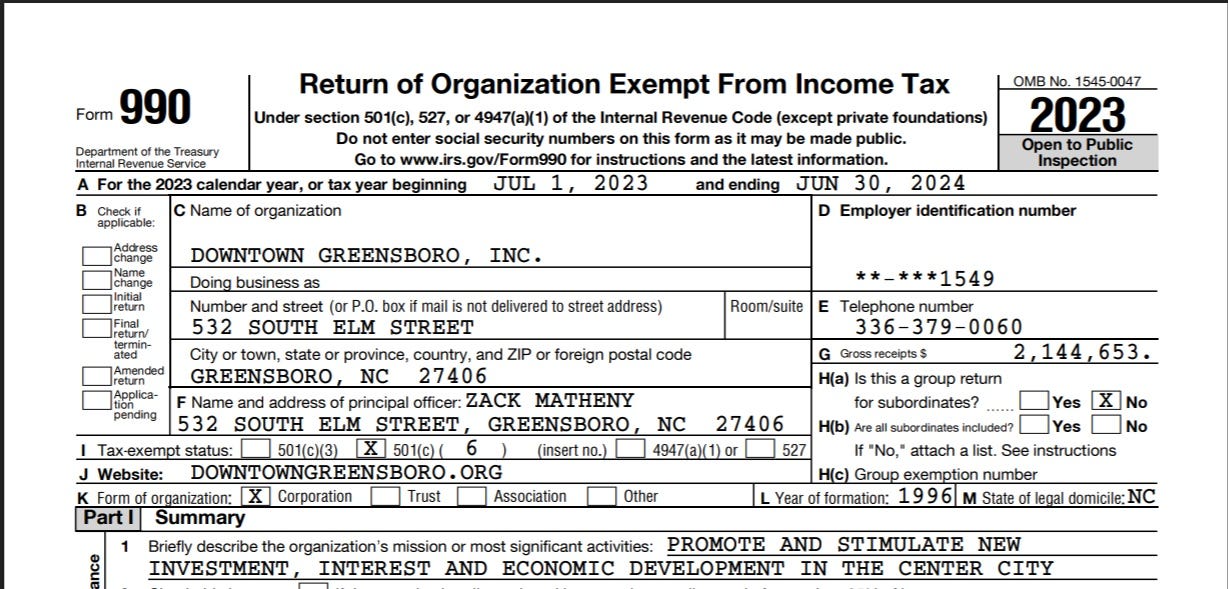








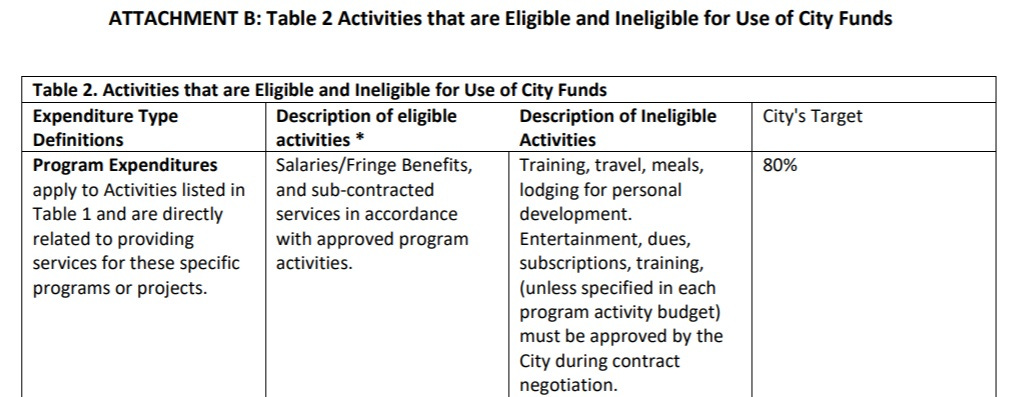


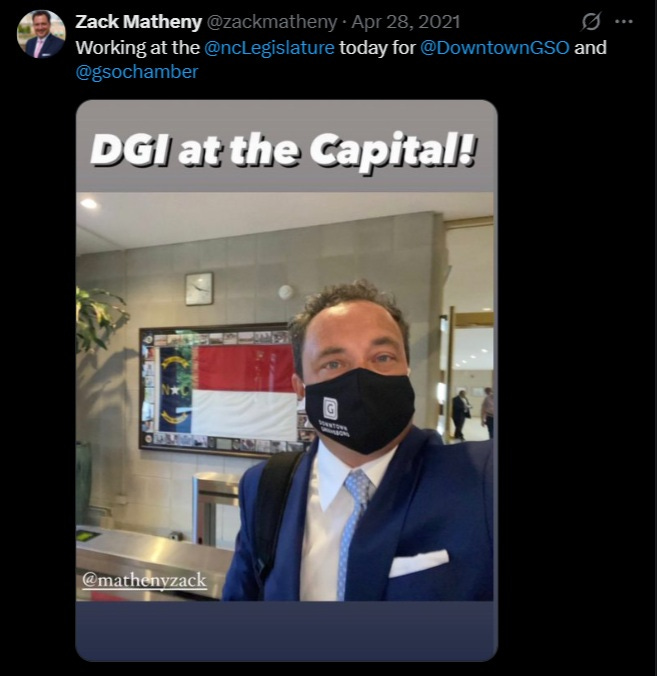
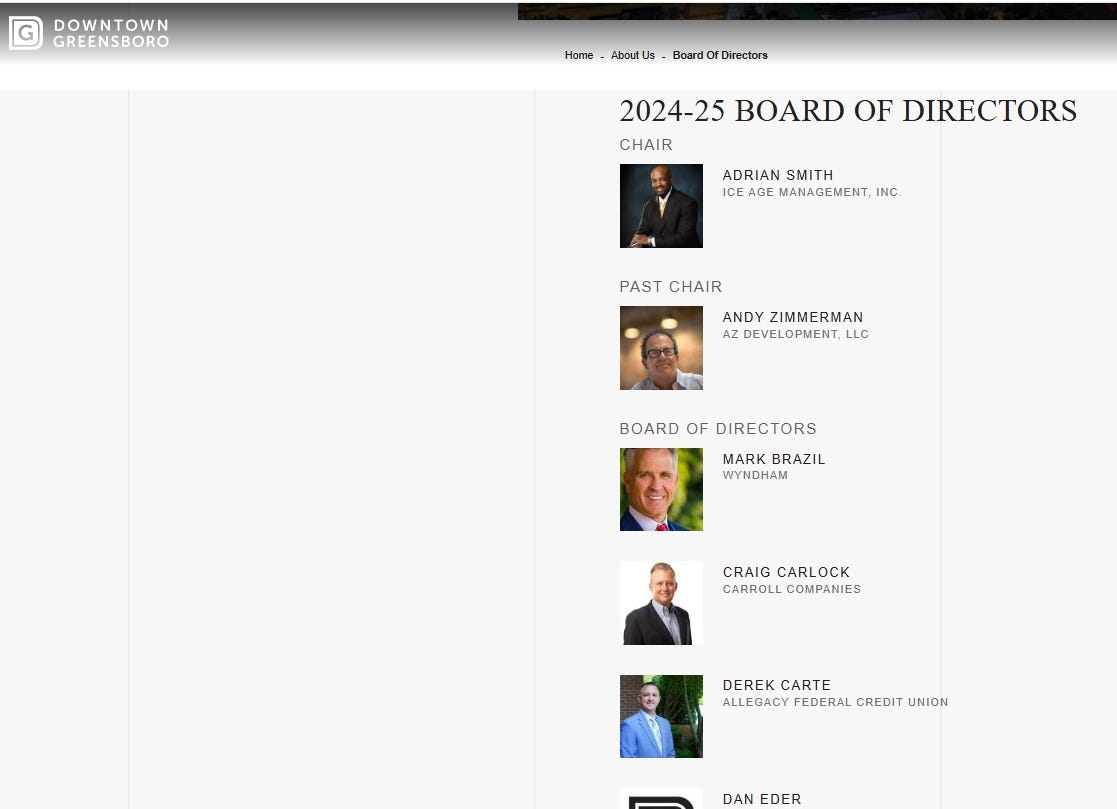
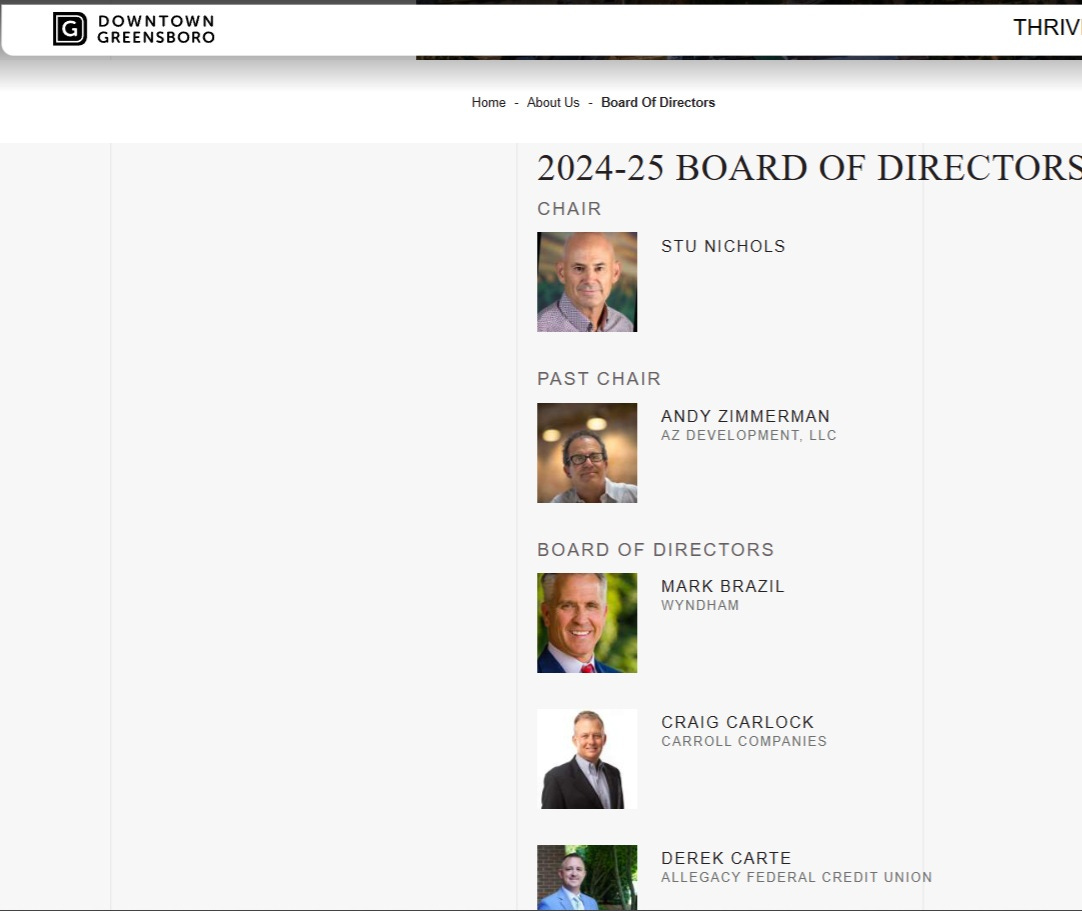

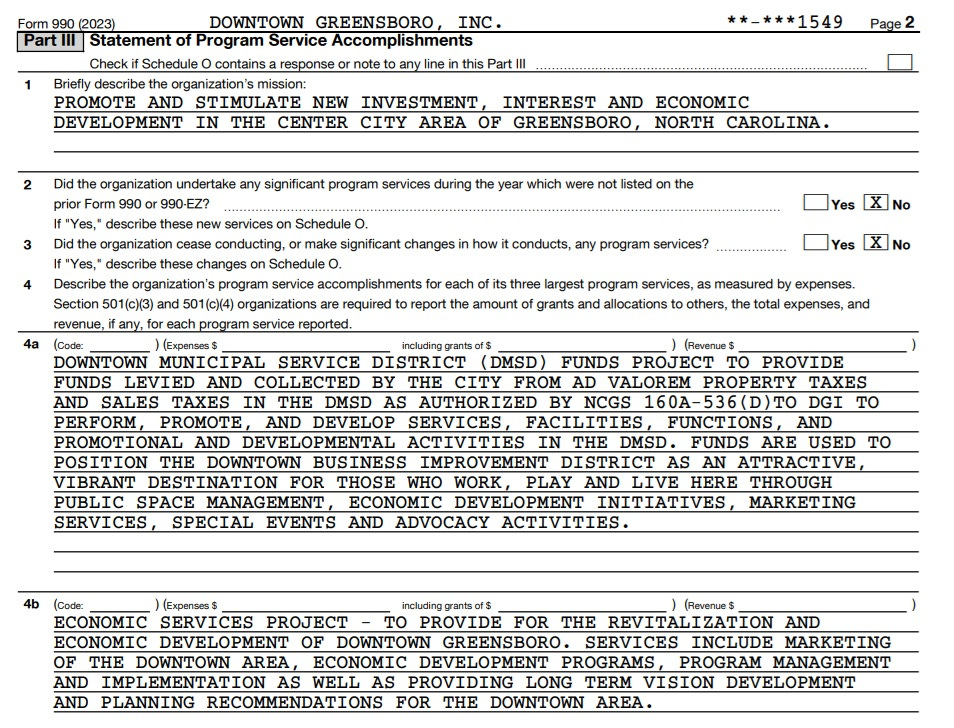


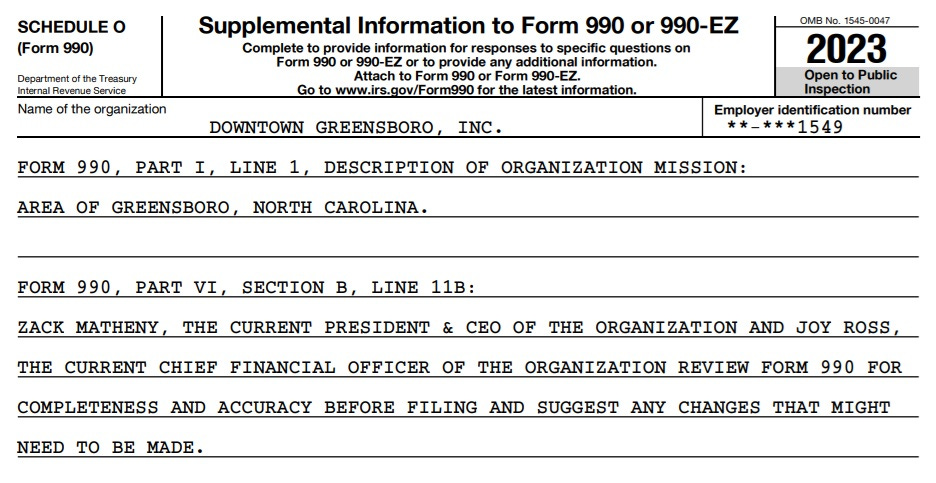

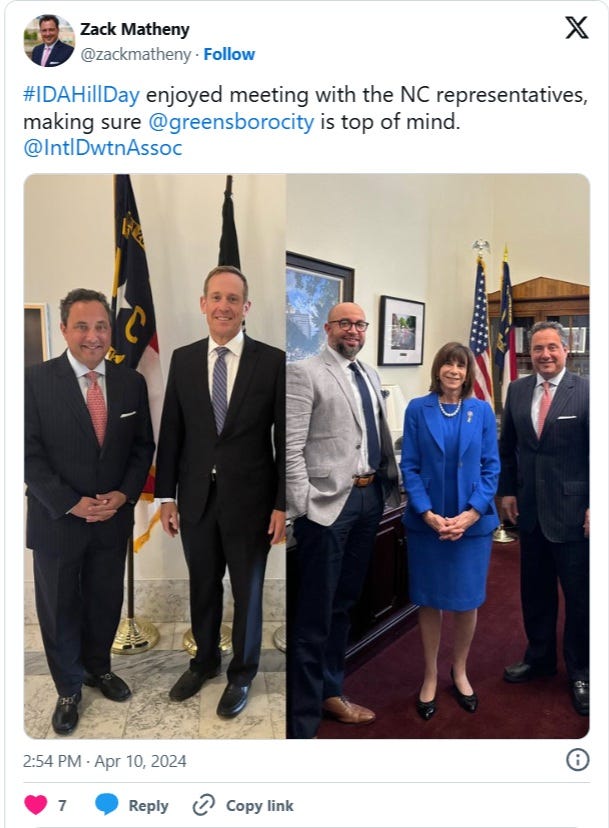
Shared on Bluesky, LinkedIn and facebook. Thank you!